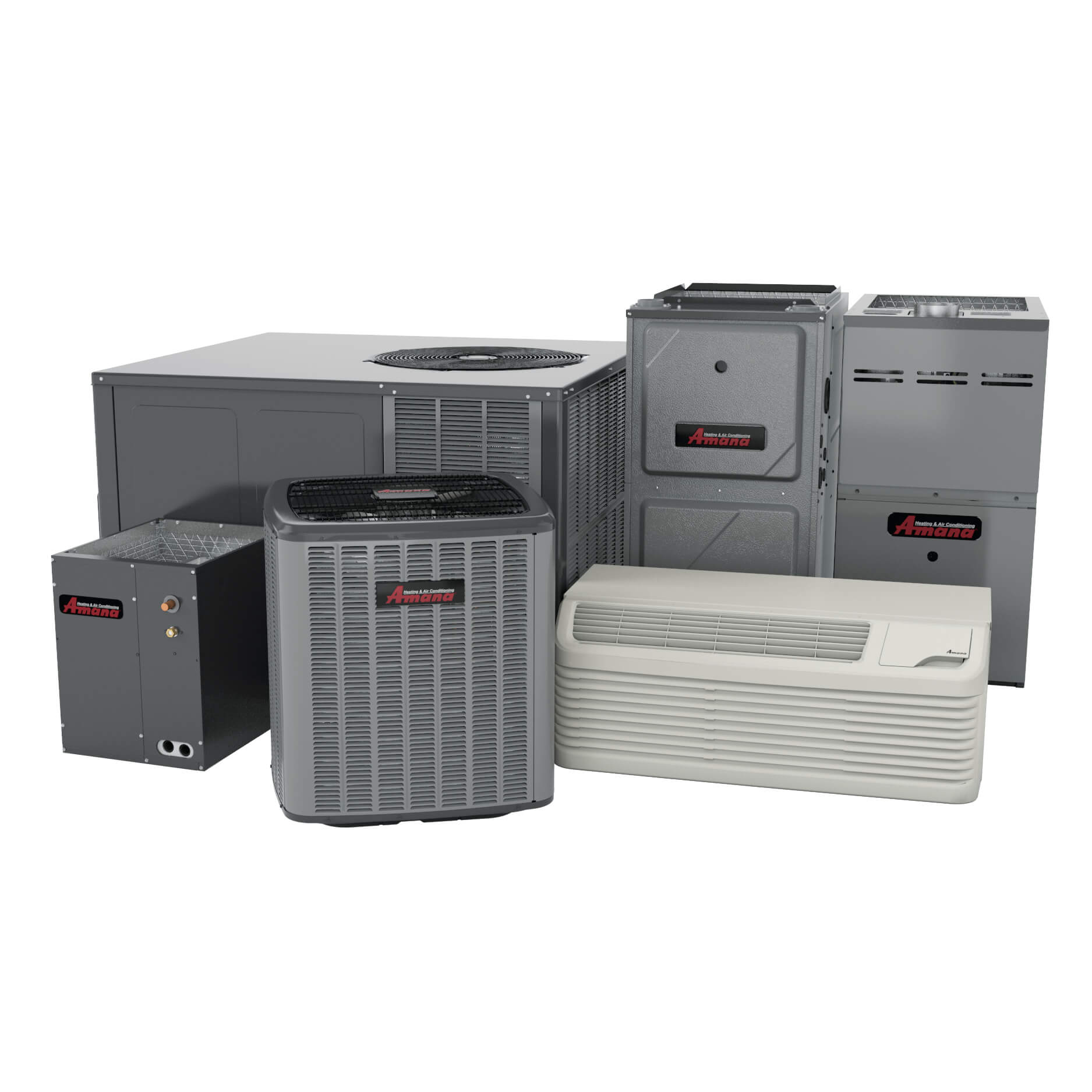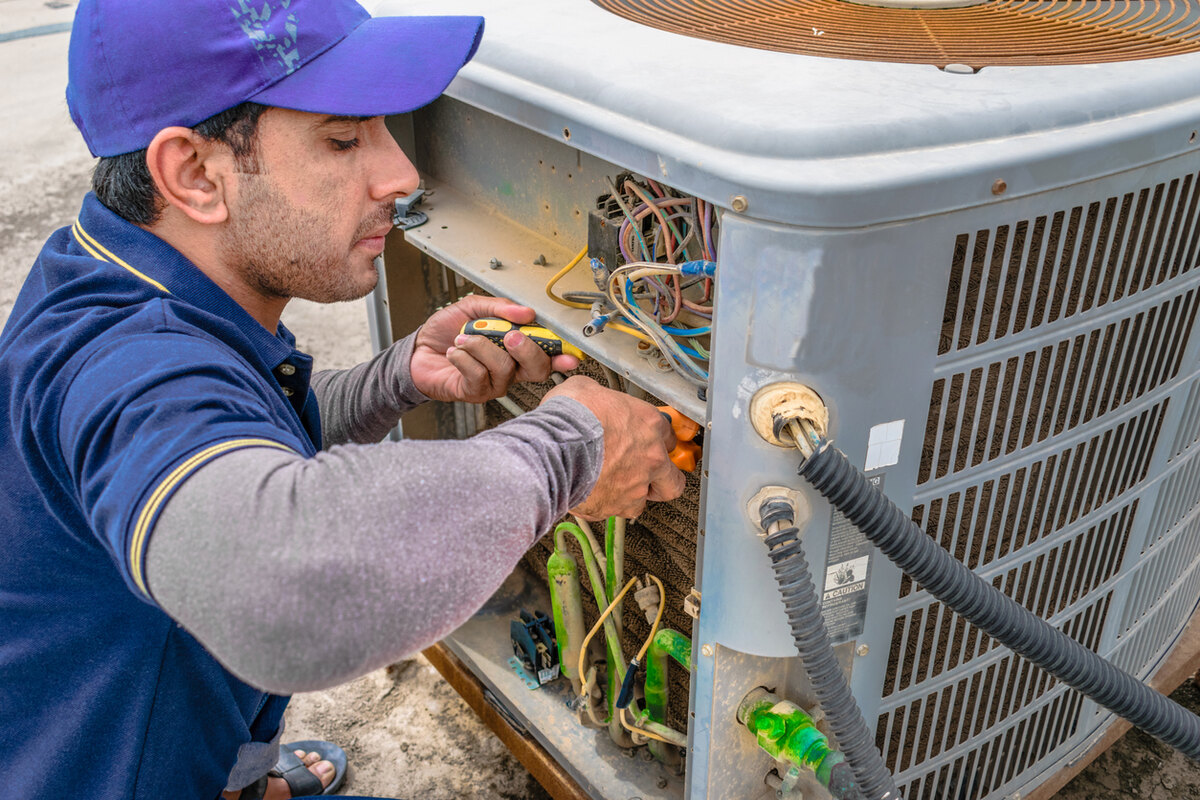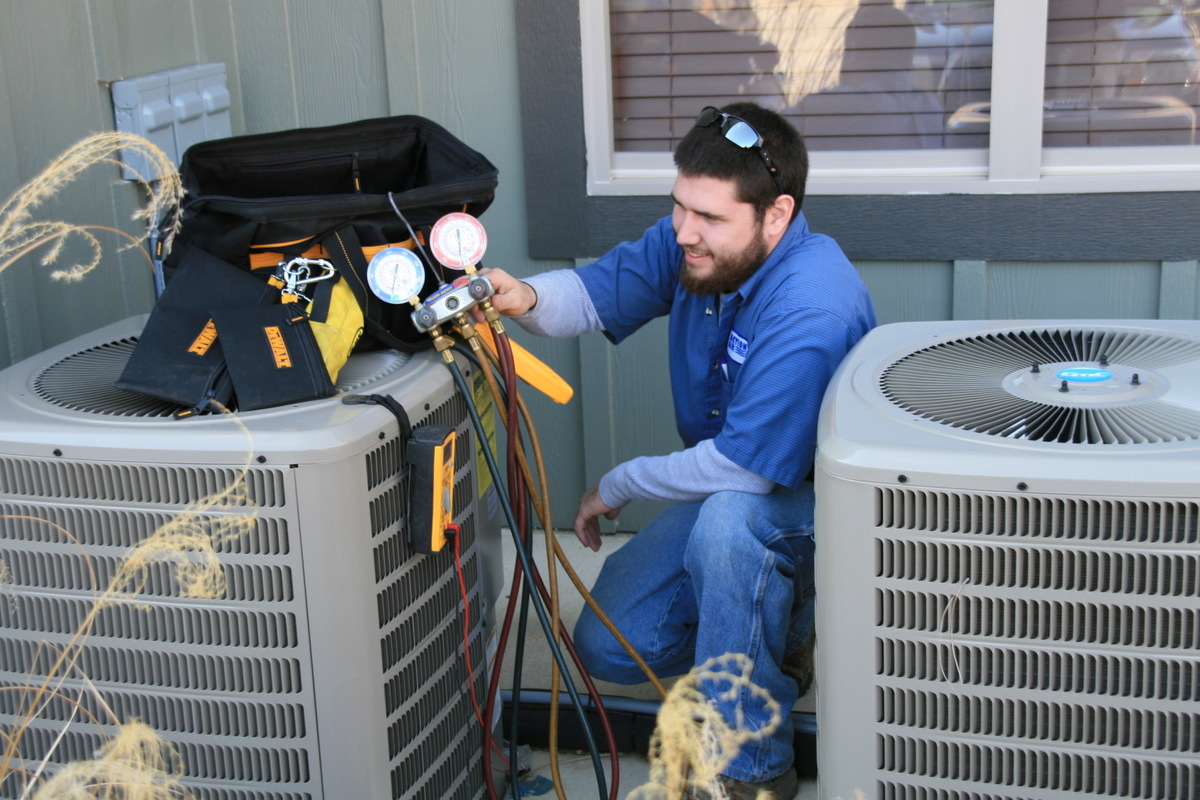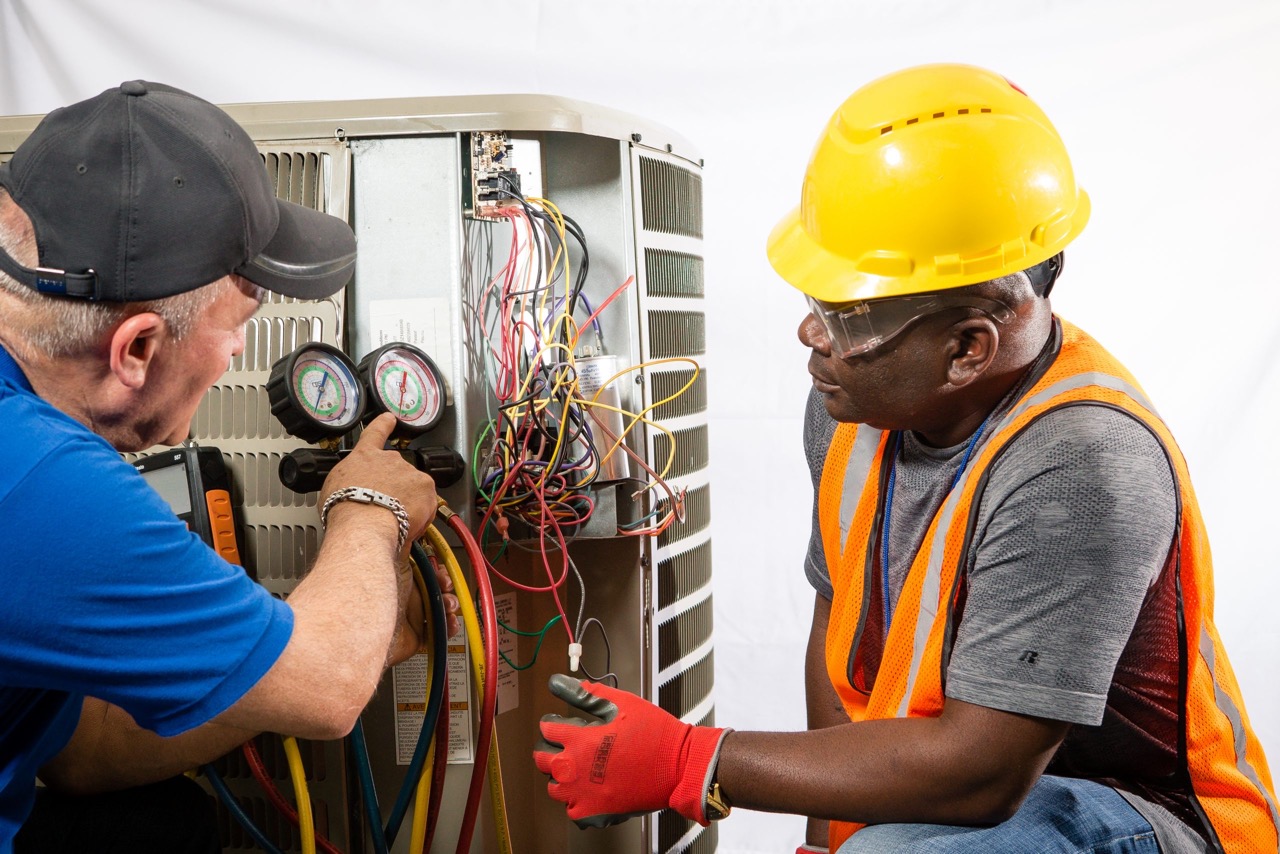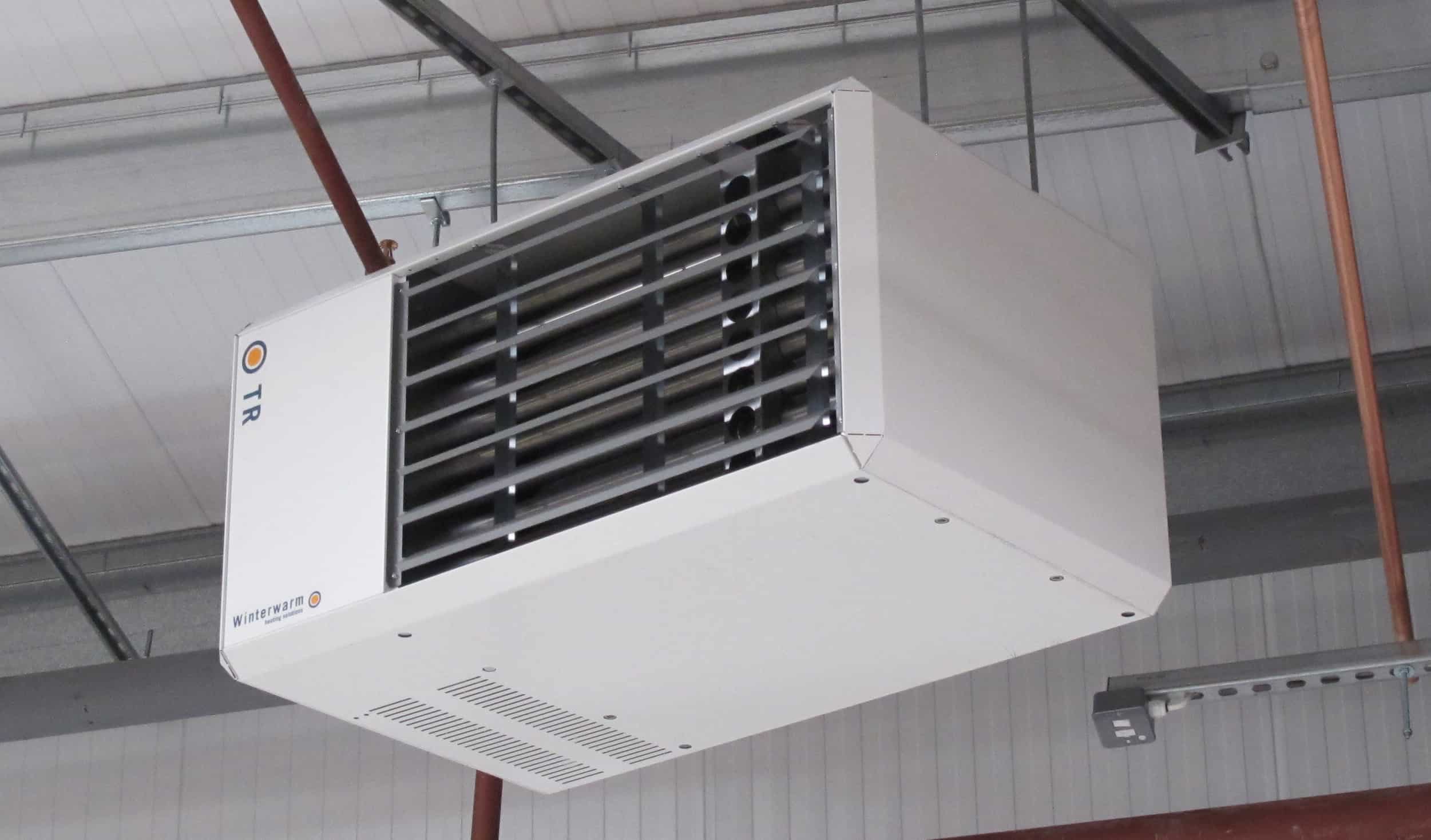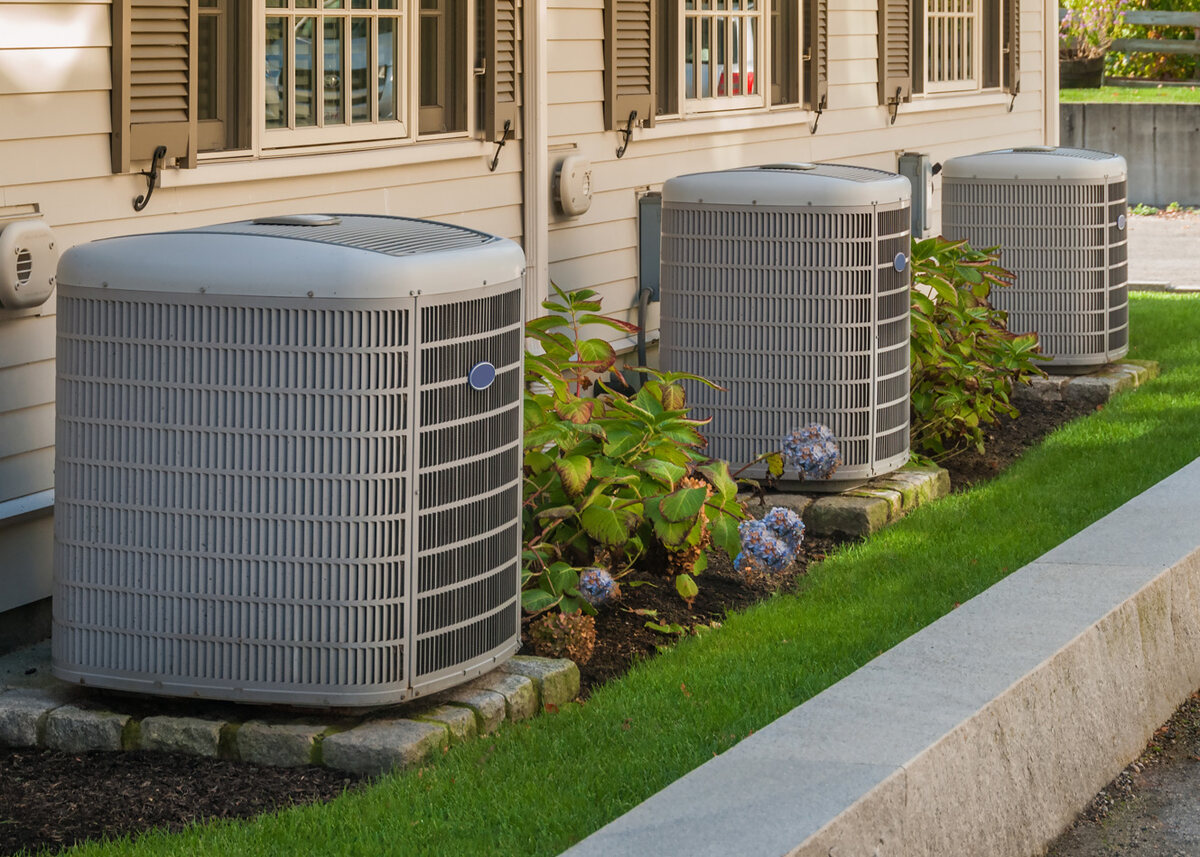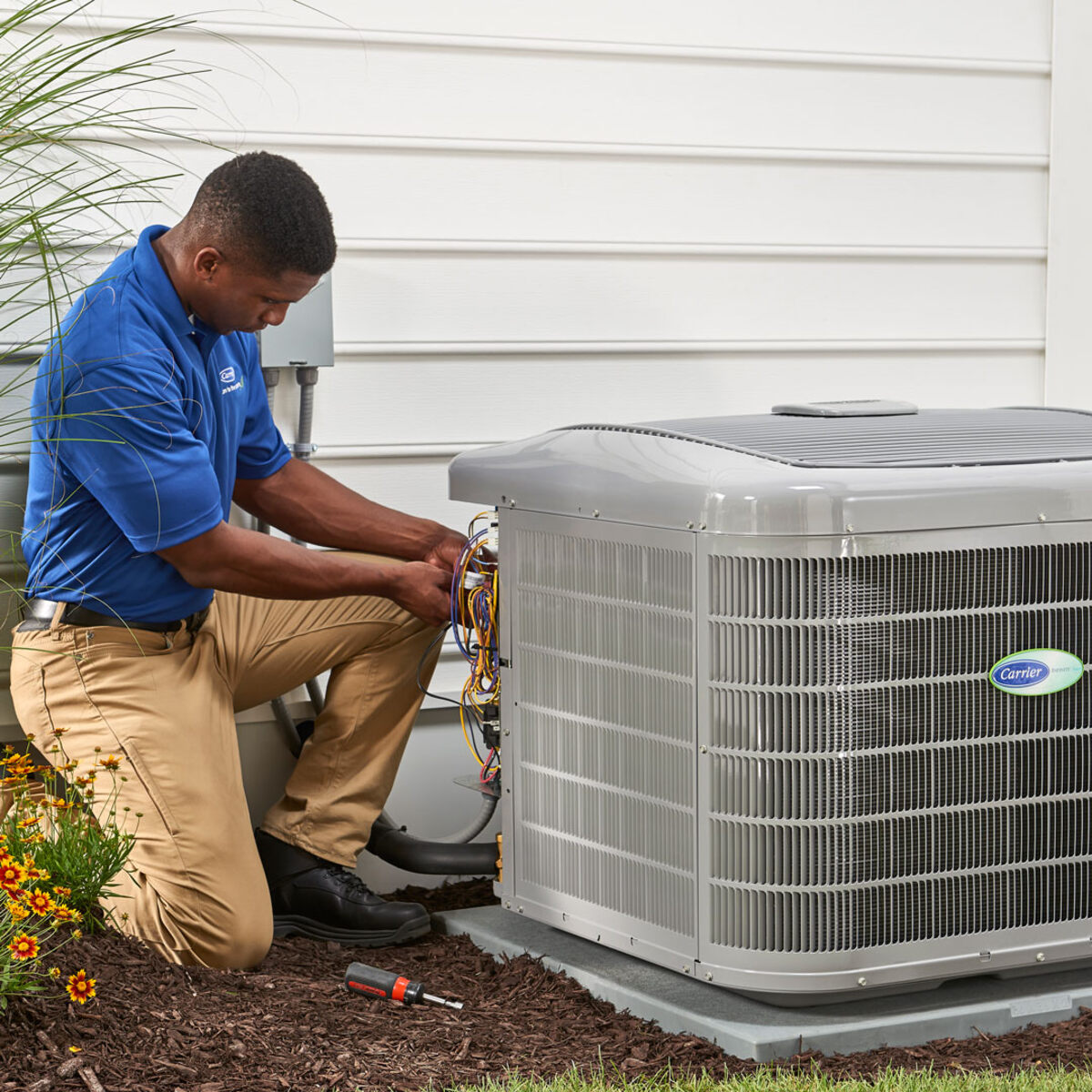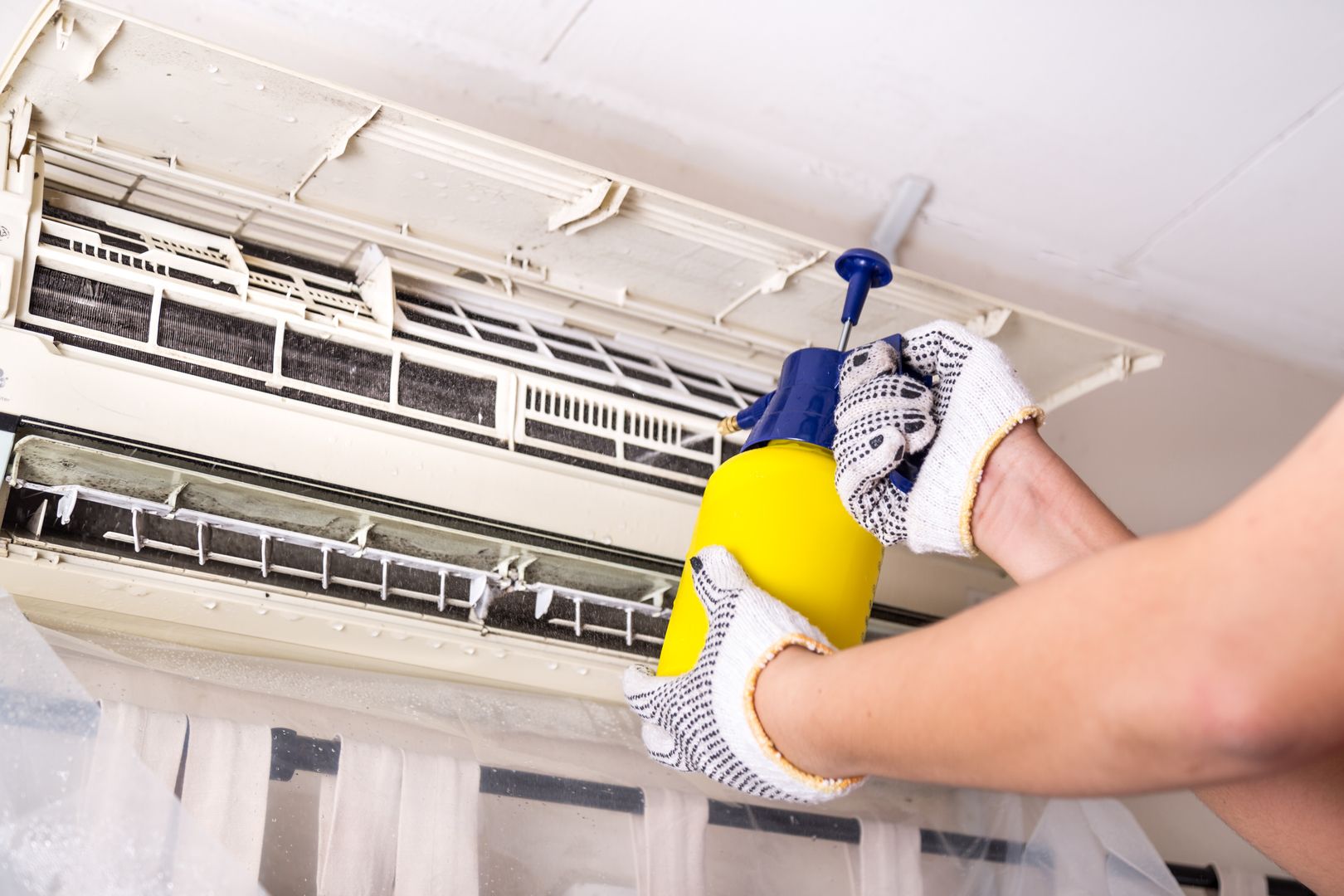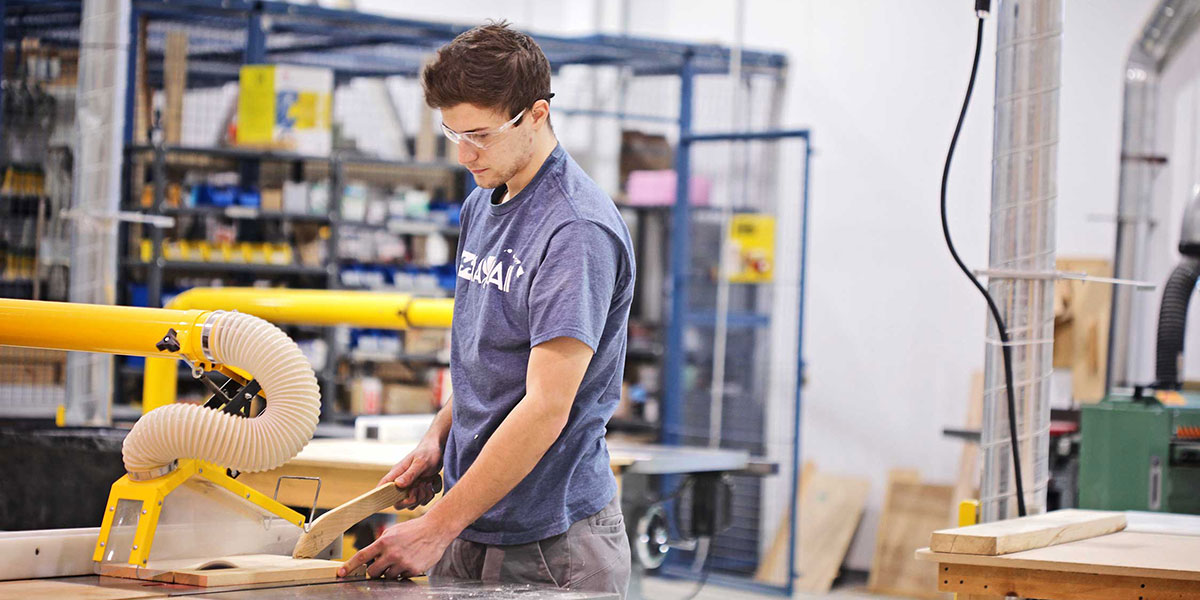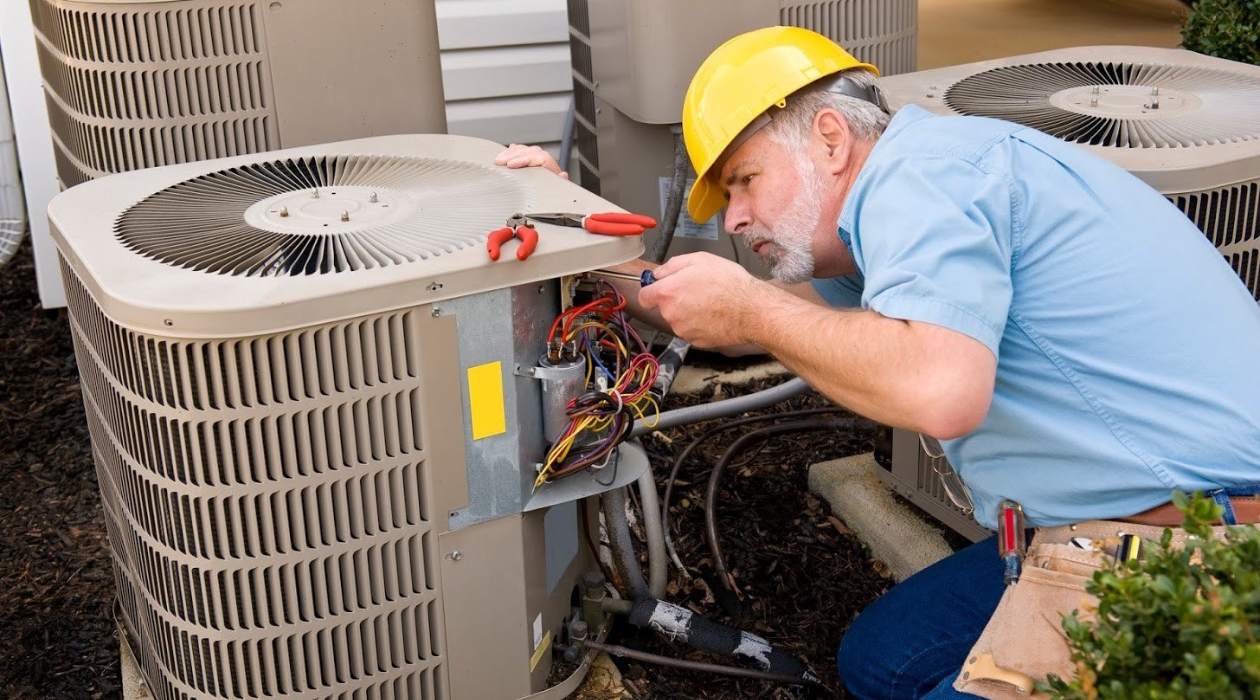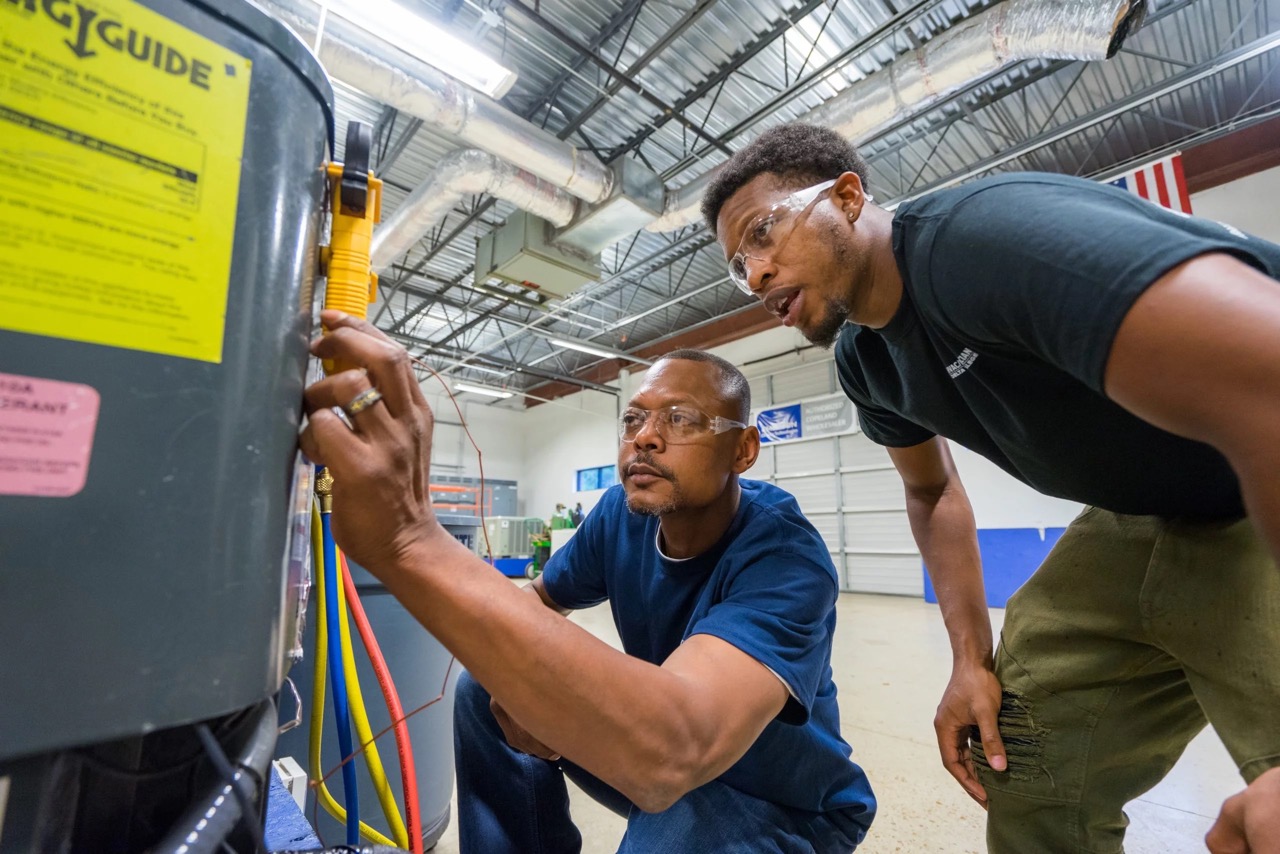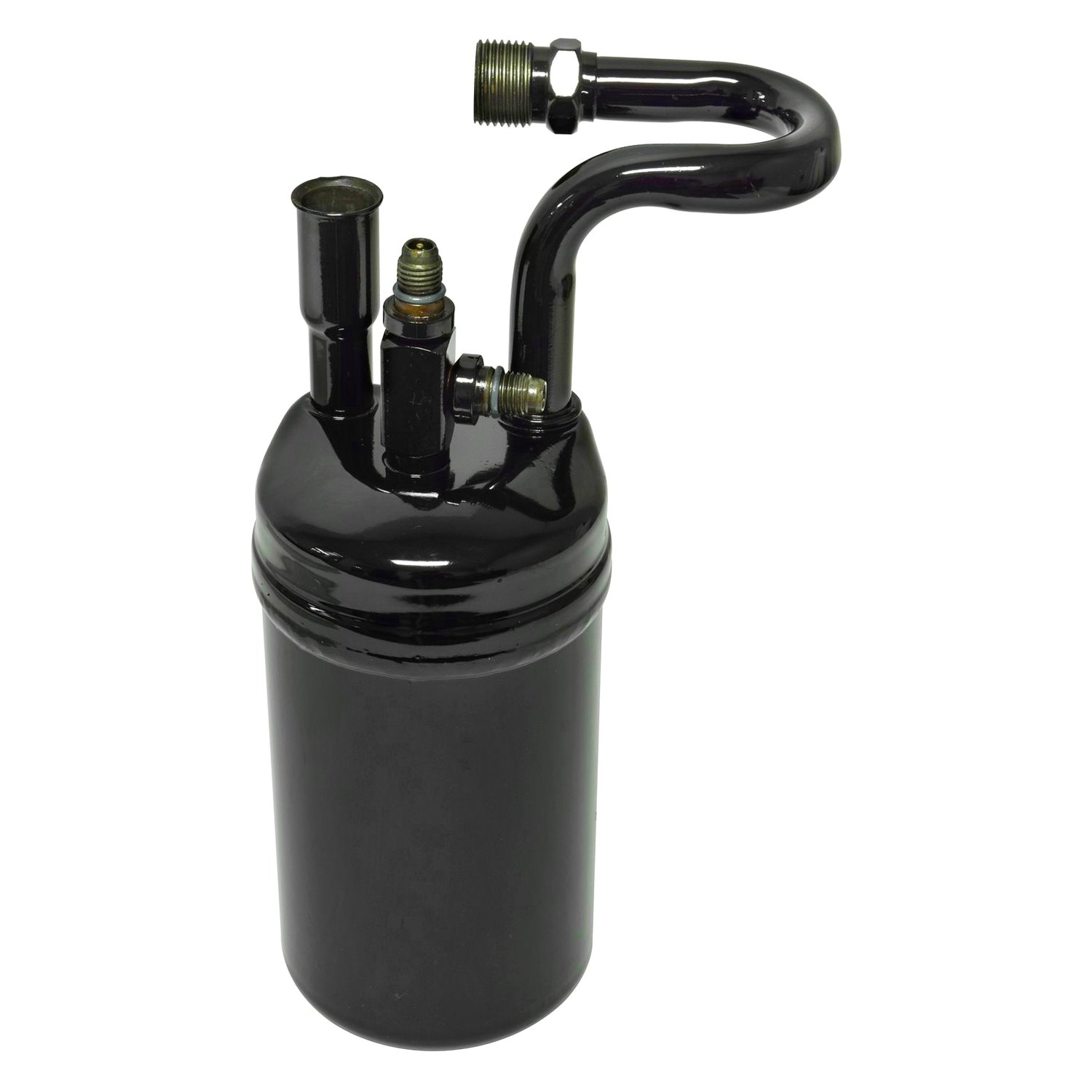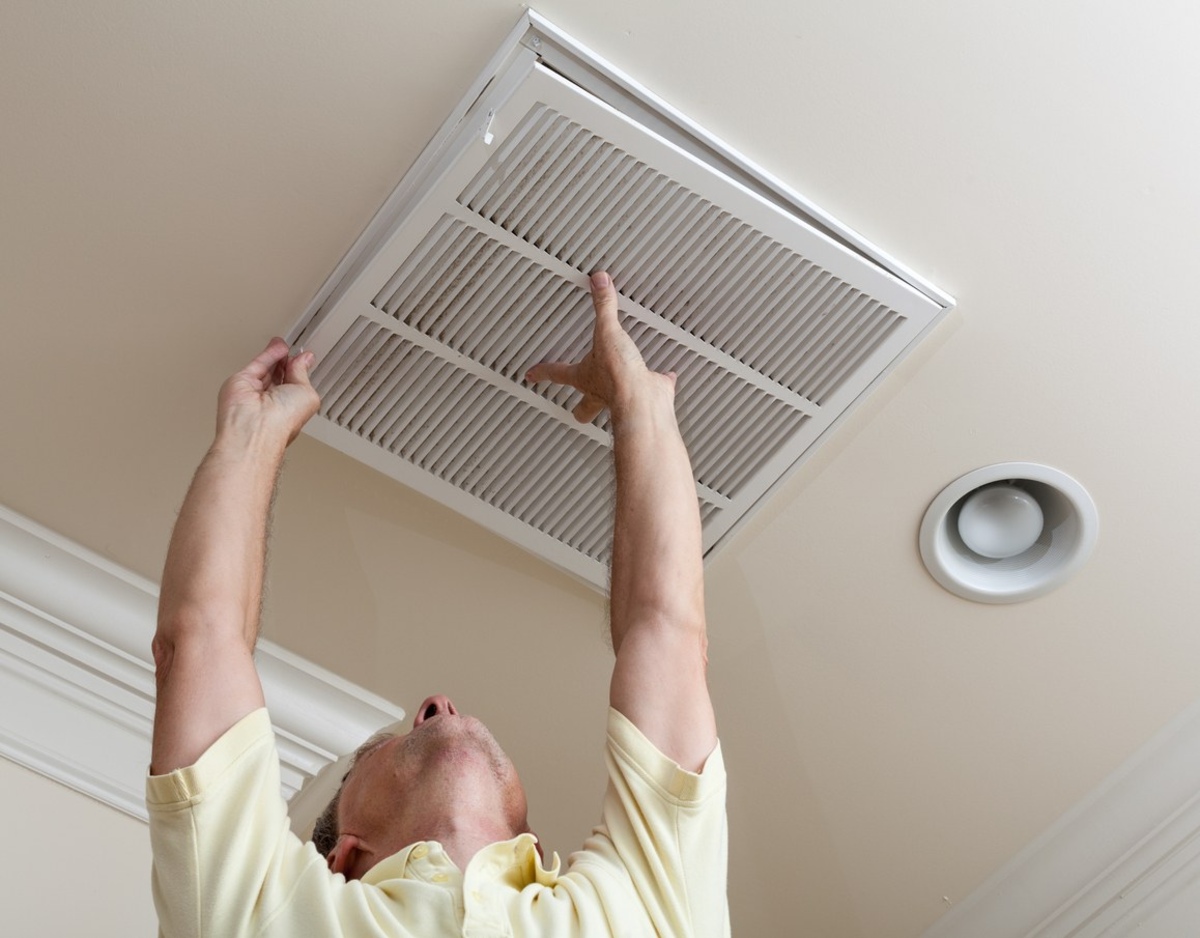Home>Home Maintenance>How Much Do Heating And Air Conditioning Technicians Earn?
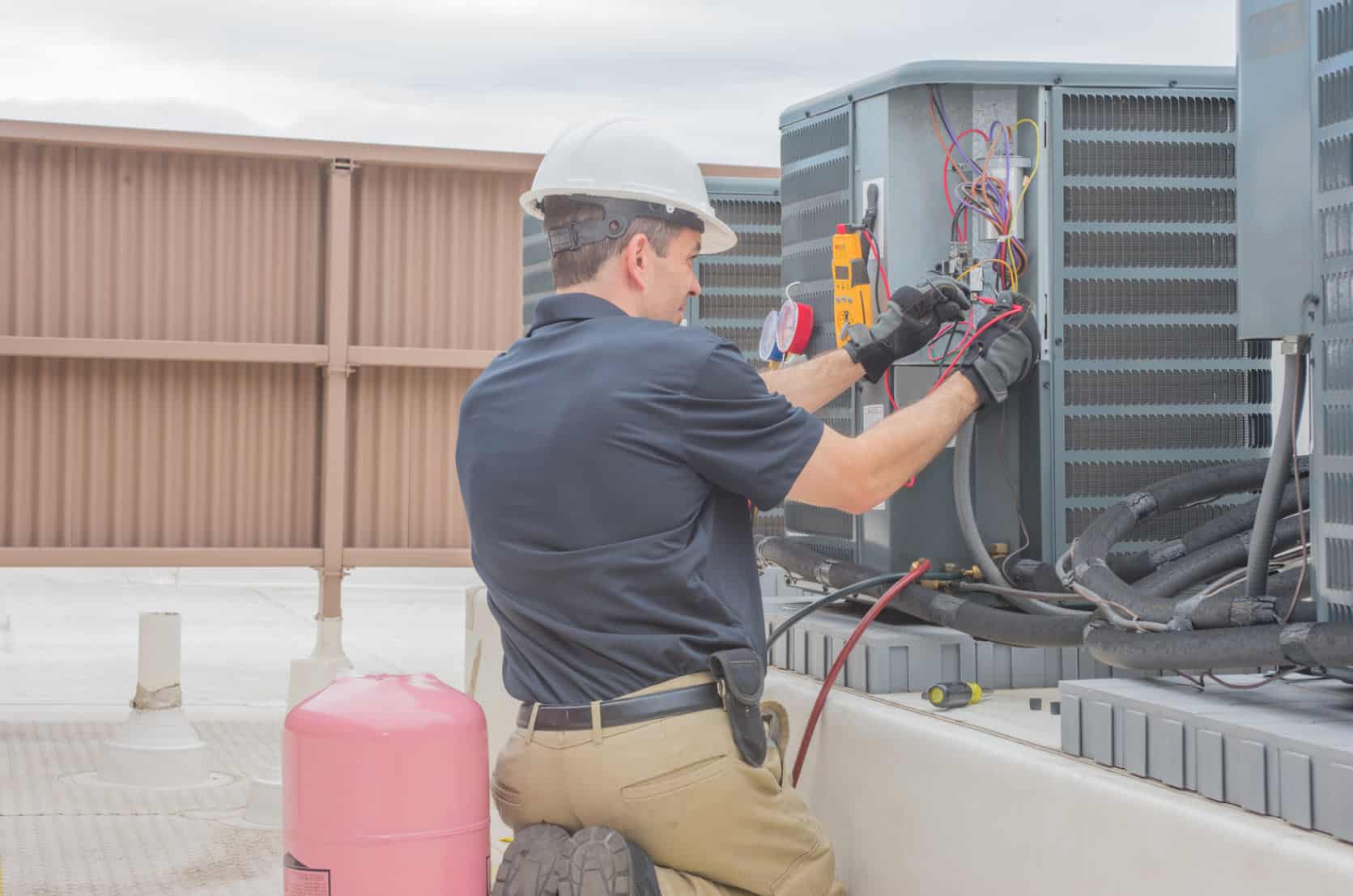

Home Maintenance
How Much Do Heating And Air Conditioning Technicians Earn?
Modified: March 6, 2024
Find out how much heating and air conditioning technicians earn in the home maintenance industry. Discover the average salary and income potential in this rewarding career.
(Many of the links in this article redirect to a specific reviewed product. Your purchase of these products through affiliate links helps to generate commission for Storables.com, at no extra cost. Learn more)
Introduction
Welcome to the world of heating and air conditioning technicians! These skilled professionals play a vital role in keeping our homes and businesses comfortable all year round. From installing and repairing HVAC systems to performing routine maintenance, heating and air conditioning technicians are in high demand.
But have you ever wondered how much these technicians earn? In this article, we will explore the factors that affect their earnings and delve into the salary ranges at different stages of their careers. Whether you’re considering a career in this field or simply curious about the earning potential, this article will provide you with valuable insights.
So, let’s dive in and discover how much heating and air conditioning technicians can earn!
Key Takeaways:
- Heating and air conditioning technicians can earn between $35,000 to $80,000 per year, depending on experience, education, industry, and location. Continuous learning and specialization can lead to higher salaries and career advancement.
- Industries like manufacturing, commercial contracting, and government agencies offer higher-paying opportunities for HVAC technicians. Geographic location, cost of living, and demand for services also impact earning potential.
Read more: How Much Does A CAD Technician Earn
Factors Affecting Earnings
Several factors come into play when determining the earnings of heating and air conditioning technicians. Let’s take a closer look at the key factors that influence their salaries:
- Experience: As with many professions, experience plays a significant role in earning potential. Entry-level technicians generally start at a lower salary and can gradually increase their earnings as they gain more experience and become more proficient in their trade.
- Education and Training: Formal education and specialized training can have a positive impact on earnings. HVAC programs offered by technical schools or community colleges equip technicians with the necessary knowledge and skills, making them more marketable to employers. Additionally, obtaining certifications from reputable organizations, such as North American Technician Excellence (NATE) or the Refrigerating Engineers and Technicians Association (RETA), can further boost earning potential.
- Industry and Employer: The industry and type of employer can also influence earnings. Technicians working for residential HVAC companies may have different salary levels compared to those employed by commercial or industrial HVAC contractors. Additionally, government agencies or large corporations may offer higher salaries and better benefits packages.
- Specialization: Specializing in a specific area of HVAC, such as refrigeration or heat pump systems, can often lead to higher earning potential. These specialized skills are in high demand and can command higher salaries due to their complexity and the limited number of technicians who possess expertise in these areas.
- Geographic Location: The location of employment can significantly impact earning potential. Technicians working in areas with a high cost of living, such as major cities, may earn higher salaries to compensate for the increased expenses associated with living in those areas.
It’s important to note that these factors are interconnected, and a combination of these elements can determine the overall earnings of heating and air conditioning technicians. It’s essential for technicians to continue learning, updating their skills, and exploring different specialization avenues to maximize their earning potential.
Certification and Training Requirements
Becoming a heating and air conditioning technician typically requires a combination of formal education and on-the-job training. While specific requirements may vary depending on the state or employer, let’s explore the general certification and training requirements for this field.
1. Education: Many aspiring technicians choose to enroll in HVAC programs offered by technical schools, community colleges, or trade schools. These programs provide a comprehensive understanding of heating, ventilation, air conditioning, and refrigeration systems. Coursework often includes electrical systems, refrigeration principles, airflow, troubleshooting, and equipment installation.
2. Apprenticeship: After completing formal education, individuals can seek apprenticeship opportunities to gain practical experience. Apprenticeships provide hands-on training under the guidance of experienced technicians and usually last for several years. During this period, apprentices learn about system installation, repair techniques, and safety procedures.
3. Certification: While not always a requirement, obtaining industry-recognized certifications can enhance job prospects and earning potential. Organizations such as North American Technician Excellence (NATE) and the Refrigerating Engineers and Technicians Association (RETA) offer certifications that validate a technician’s knowledge and abilities in specific areas like air conditioning, refrigeration, heat pumps, or commercial HVAC systems.
Continuing education is also crucial in this rapidly evolving industry. Technicians must stay updated on the latest advancements and regulations to maintain their knowledge and skills. Many organizations offer training programs and workshops to facilitate ongoing learning.
It’s important to research the specific certification and training requirements in your region, as they may vary. Some states or local municipalities may have additional licensing requirements that technicians need to fulfill to work independently or handle certain types of refrigerants.
By investing in education, apprenticeships, and certifications, heating and air conditioning technicians can enhance their expertise and distinguish themselves in a competitive job market. These qualifications not only provide better job opportunities but can also lead to higher salaries and increased job security.
Entry-Level Heating and Air Conditioning Technician Salaries
When starting out in the field of heating and air conditioning, technicians can expect to earn an entry-level salary. The exact salary can vary depending on factors such as location, employer, and qualifications. However, we can provide a general idea of the salary range for entry-level technicians.
On average, entry-level heating and air conditioning technicians can earn around $35,000 to $45,000 per year. This salary range might be higher in areas with a higher cost of living or in regions with a high demand for HVAC technicians.
It’s important to note that entry-level technicians are typically in the early stages of their career and may have limited experience. As they gain more proficiency and knowledge through on-the-job training and additional certifications, their earning potential will likely increase over time.
Entry-level technicians often have the opportunity to learn valuable skills and gain practical experience by working alongside more experienced professionals. This hands-on training equips them with the necessary foundation to excel in their careers and command higher salaries as they progress.
Additionally, entry-level technicians may also have the opportunity to earn additional income through overtime hours, especially during busy seasons when HVAC systems are heavily in demand.
While entry-level salaries may not be as high as those of more experienced technicians, they provide a solid starting point for individuals entering the field, allowing them to build their skills and establish a foothold in the industry.
It’s worth mentioning that with dedication, continuous learning, and a drive to excel, heating and air conditioning technicians can quickly advance in their careers and move beyond the entry-level salary range.
Mid-Career Heating and Air Conditioning Technician Salaries
As heating and air conditioning technicians gain experience and expertise in their field, their earning potential tends to increase. The mid-career stage presents an exciting opportunity for technicians to earn higher salaries and take on more challenging roles within the industry.
On average, mid-career heating and air conditioning technicians can expect to earn between $45,000 and $60,000 per year. The exact salary can vary depending on factors such as location, industry, employer, and specialization. Technicians working in high-demand areas or specializing in complex systems like commercial HVAC or refrigeration may command higher salaries within this range.
Mid-career technicians typically have several years of hands-on experience under their belt. They are well-versed in various HVAC systems, comfortable with troubleshooting and maintenance procedures, and capable of independently handling routine installations and repairs.
In addition to their experience and skills, mid-career technicians may also benefit from certifications and continuing education. These additional qualifications can help them secure higher-paying positions and advance their careers.
Moreover, mid-career technicians often enjoy increased job stability, as their experience and reputation within the industry make them valuable assets to their employers. They may also have the opportunity to take on leadership roles, supervising and mentoring entry-level technicians.
It’s important to note that salaries can vary depending on the specific industry in which technicians are employed. For instance, technicians working in the residential sector may have different salary ranges compared to those in the commercial or industrial sectors.
Mid-career technicians may also have the potential to earn additional income through overtime or specialized projects. Some technicians start their own HVAC businesses or work as independent contractors, allowing them to have more control over their earnings.
Overall, mid-career heating and air conditioning technicians enjoy a significant increase in earning potential compared to entry-level technicians. By continuously updating their skills, pursuing additional certifications, and seeking opportunities for growth, technicians can further increase their salaries and advance in their careers.
Heating and air conditioning technicians can earn an average of $48,730 per year, but this can vary based on location, experience, and certification. It’s important to research the specific salary range in your area and consider obtaining additional certifications to increase your earning potential.
Experienced Heating and Air Conditioning Technician Salaries
Experienced heating and air conditioning technicians who have established a solid reputation in the industry and demonstrated exceptional skills can expect to earn even higher salaries. At this stage, technicians have accumulated a wealth of knowledge and experience, making them invaluable assets to their employers.
The salary range for experienced heating and air conditioning technicians typically falls between $60,000 and $80,000 per year, depending on various factors such as location, industry, employer, specialization, and the technician’s track record of success.
Technicians at this stage have a deep understanding of a wide range of HVAC systems and are adept at diagnosing and resolving complex issues. They have honed their troubleshooting skills, ensuring efficient and effective repairs or installations.
Experienced technicians often have a strong customer base and may receive referrals due to their reputation for quality workmanship and exceptional customer service. This can lead to additional income opportunities through private jobs or contracting work.
Additionally, experienced technicians who have obtained advanced certifications and specialized training are likely to command higher salaries. Certifications such as Certified HVAC Professional (CHP) or Certified HVAC Specialist (CHS) demonstrate a technician’s expertise in specific areas of the industry, further enhancing their earning potential.
Experienced technicians may also have the opportunity to take on supervisory roles or move into management positions within HVAC companies. These elevated positions often come with higher salaries and additional benefits.
It’s important to note that salaries can vary greatly depending on geographical location, with higher demand areas typically correlating with increased earnings. Metropolitan areas and regions with extreme climates often present greater opportunities for experienced technicians to command higher salaries.
Overall, experienced heating and air conditioning technicians enjoy a significant boost in earning potential as a result of their expertise, reputation, and the demand for their services. By staying updated with industry trends, refining their skills, and consistently delivering exceptional work, experienced technicians can continue to thrive in their careers and secure lucrative opportunities.
Highest-Paying Industries for Heating and Air Conditioning Technicians
While heating and air conditioning technicians can find employment in a variety of industries, certain sectors tend to offer higher salaries compared to others. Here are some of the highest-paying industries for heating and air conditioning technicians:
- Manufacturing: The manufacturing industry typically requires specialized HVAC systems to ensure optimal working conditions in factories and production facilities. Technicians working in this sector may install, repair, and maintain large-scale HVAC systems, commanding higher salaries due to the complexity and scope of the projects.
- Commercial and Industrial Contracting: Technicians specializing in commercial and industrial HVAC systems often handle sophisticated and extensive installations. They may work on projects such as office buildings, shopping centers, hospitals, or manufacturing plants. These projects tend to have larger budgets, allowing for higher salaries.
- Energy and Utilities: Companies involved in energy generation, such as power plants or renewable energy facilities, rely on HVAC systems to maintain optimal conditions for equipment and personnel. Technicians working in the energy and utilities sector may work on specialized systems and can expect competitive salaries.
- Government Agencies: Heating and air conditioning technicians employed by municipal or federal government agencies often enjoy higher pay scales and better benefits packages. These positions may involve maintaining HVAC systems in schools, hospitals, government buildings, or military installations.
- Residential Construction and Remodeling: Technicians working in the residential construction and remodeling industry may earn higher salaries depending on the scope and scale of the projects they are involved in. High-end residential properties and luxury renovations often require advanced HVAC systems, which can lead to increased earning potential for technicians.
It’s important to note that salaries can also vary based on the geographical location and the cost of living in a particular area. Major cities or regions with a higher demand for skilled HVAC technicians typically offer better salaries compared to smaller towns or rural areas.
Additionally, technicians with specialized skills or certifications in areas such as refrigeration, energy efficiency, or advanced controls may find higher-paying opportunities within their respective industries.
While these industries tend to offer higher salaries, it’s essential for technicians to carefully consider their personal preferences, skill sets, and long-term career goals when choosing an industry to specialize in. Job satisfaction and growth opportunities should also be taken into account alongside salary considerations.
Geographic Location’s Impact on Earnings
The geographic location in which heating and air conditioning technicians work has a significant impact on their earning potential. Salaries can vary greatly depending on the local demand for HVAC services, cost of living, and regional economic factors. Let’s explore how geographic location impacts earnings for technicians:
1. High Demand Areas: Metropolitan areas, densely populated cities, and regions with extreme climates often have a higher demand for heating and air conditioning services. This increased demand can drive up salaries as technicians are in greater demand, making it more competitive for employers to attract and retain skilled professionals.
2. Regional Cost of Living: The cost of living in a particular area influences salary levels. Technicians working in areas with a higher cost of living, such as major cities or affluent regions, may receive higher wages to offset the increased expenses associated with housing, transportation, and other daily necessities.
3. Climate: Regions with extreme climates, such as extremely hot or cold temperatures, may have higher demand for heating and cooling services. This higher demand can lead to increased salaries for technicians who specialize in providing HVAC solutions to effectively manage temperature control in such environments.
4. Economic Factors: The local economy plays a role in determining salary scales. Regions with a strong economy and thriving businesses may have more resources available to invest in HVAC projects and maintenance, resulting in higher salaries for technicians. Conversely, areas with a weaker economy or limited industry may have lower salary ranges.
5. Union Influence: In certain areas, heating and air conditioning technicians may be part of labor unions that negotiate wage scales, benefits, and working conditions on behalf of their members. Unionized technicians often enjoy higher salaries and better benefits due to collective bargaining agreements.
It’s important for technicians to research and evaluate the earning potential in their desired geographic area before entering the field or considering a relocation. Online salary surveys, job postings, and industry forums can provide valuable insights into the average salaries and opportunities available in specific locations.
Lastly, it’s worth noting that while geographic location is a key factor, it should not be the sole factor in deciding where to pursue a career as a heating and air conditioning technician. Factors such as job satisfaction, career growth opportunities, and personal preferences should also be taken into consideration when considering a location for employment.
Conclusion
Heating and air conditioning technicians play a crucial role in ensuring our comfort and well-being by installing, maintaining, and repairing HVAC systems. The earning potential for these skilled professionals can vary based on several factors, including experience, education, industry, specialization, and geographic location.
Entry-level technicians typically start with modest salaries, ranging from $35,000 to $45,000 per year. However, as technicians gain experience and expertise, their earning potential increases. Mid-career technicians can expect to earn between $45,000 and $60,000 annually, while experienced technicians with a strong reputation and advanced skills can command salaries ranging from $60,000 to $80,000 or more per year.
The industry and sector in which technicians work also play a significant role in determining salaries. Industries such as manufacturing, commercial and industrial contracting, energy and utilities, government agencies, and high-end residential construction tend to offer higher-paying opportunities.
Geographic location is another crucial factor affecting earnings. Technicians working in high-demand areas, regions with a high cost of living, or areas with extreme climates may enjoy higher salaries due to increased demand or higher living expenses. Local economic factors and union influence can also impact salary scales.
Continued education, certification, and specialization can contribute to higher earning potential for technicians at all career stages. By constantly updating their skills and staying informed about industry trends, technicians can position themselves for higher-paying and more rewarding opportunities.
It’s important for heating and air conditioning technicians to carefully consider their career goals, personal preferences, and long-term prospects when choosing a specific industry or geographic location. While salary is a crucial consideration, factors such as job satisfaction, growth opportunities, and work-life balance should also be taken into account.
In conclusion, heating and air conditioning technicians have the opportunity to build a rewarding and financially stable career. By investing in education, gaining experience, obtaining certifications, and keeping up with industry trends, technicians can maximize their earning potential and excel in this in-demand field.
Frequently Asked Questions about How Much Do Heating And Air Conditioning Technicians Earn?
Was this page helpful?
At Storables.com, we guarantee accurate and reliable information. Our content, validated by Expert Board Contributors, is crafted following stringent Editorial Policies. We're committed to providing you with well-researched, expert-backed insights for all your informational needs.
